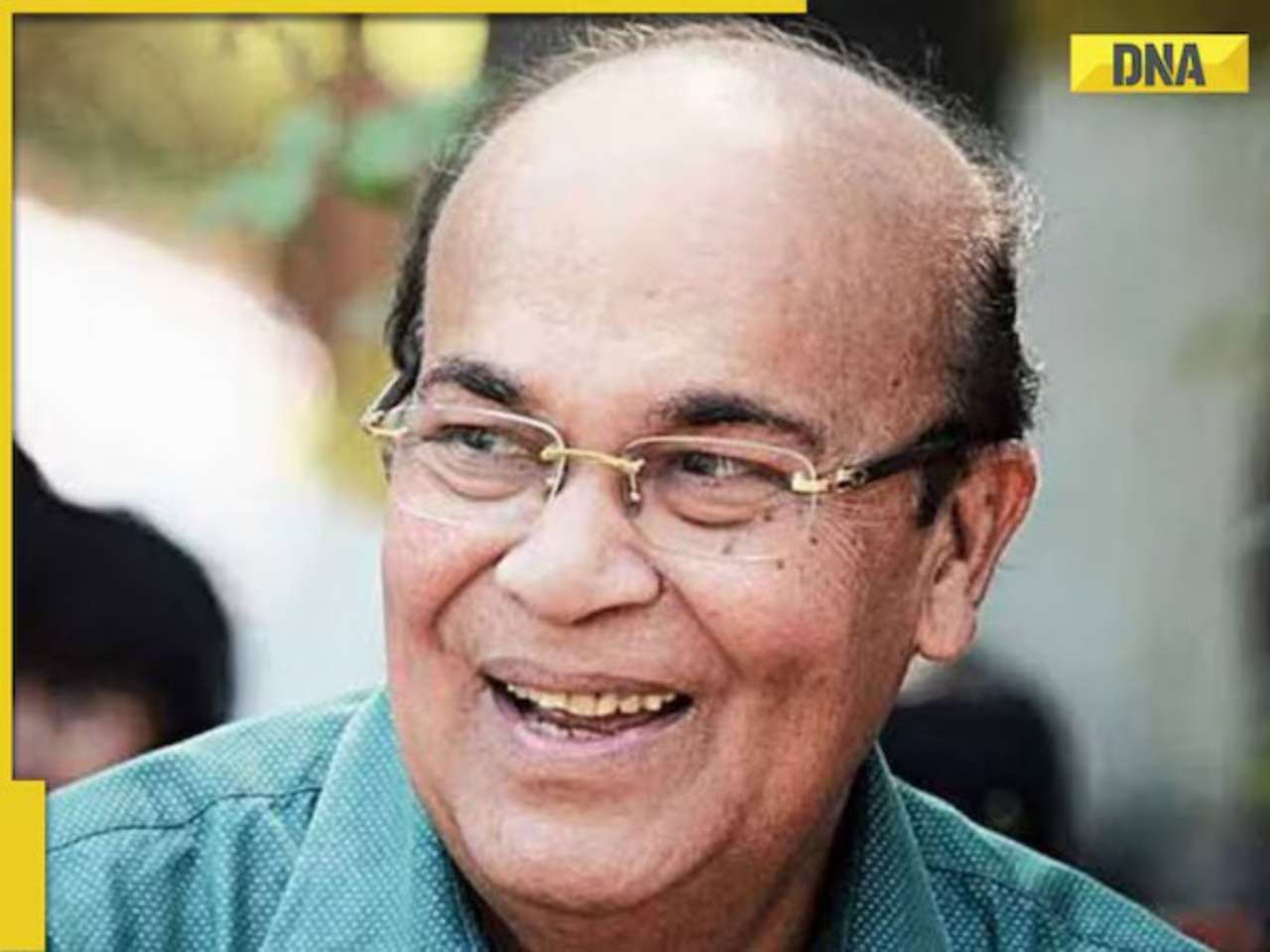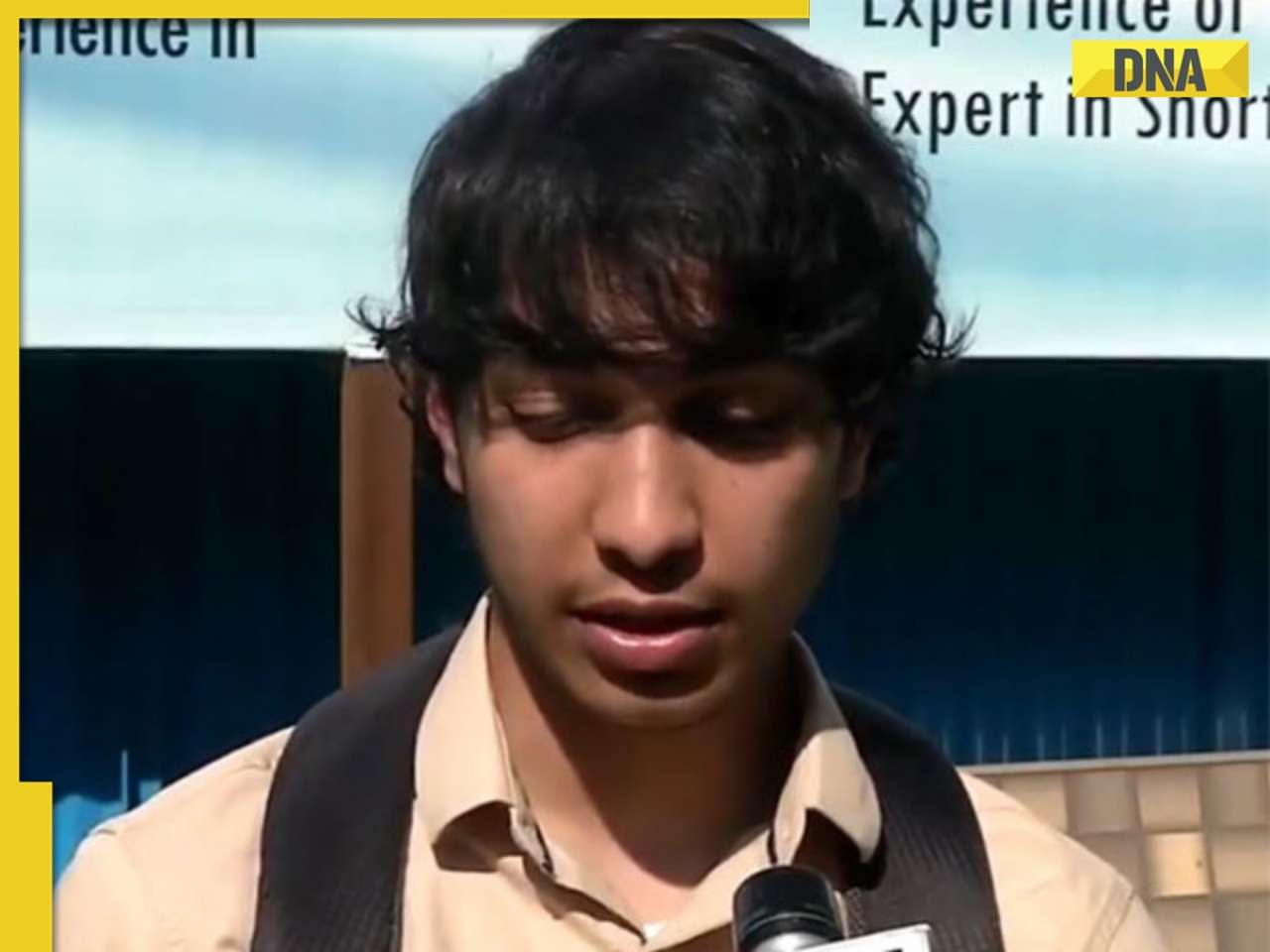Rival Palestinian factions signed a comprehensive deal Thursday to form a national unity government after marathon talks in Mecca.
MECCA: Rival Palestinian factions signed a comprehensive deal Thursday to form a national unity government after marathon talks in Mecca aimed at ending lethal infighting and a crippling international boycott.
The historic document was signed by Palestinian president Mahmud Abbas who heads the Fatah party and the exiled leader of the ruling Islamist Hamas movement Khaled Meshaal, with Saudi host King Abdallah also attending.
"We have achieved results that will serve our people," Abbas said at the ceremony.
The accord has been named 'The Mecca Declaration' after the Saudi holy city where the factions have been holding crunch talks over the last two days.
Abbas swiftly asked prime minister Ismail Haniya to form a new government following the accord, which included a plan for division of ministerial posts.
Abbas called on the future government "to respect international law and agreements signed by the Palestine Liberation Organization," Abbas advisor Nabil Amr said at the signing ceremony.
Haniya's Hamas has in the past consistently refused to abide by deals signed by the PLO with Israel. The ruling Islamist Hamas movement and Abbas's Fatah party also agreed on a political programme, but details were not immediately available.
Crucial for the Palestinians is whether it will be enough to convince Western donors and Israel to end a crippling blockade. As part of the deal, a major step toward averting civil war, the Hamas premier will keep his job and the crucial post of interior minister will go to an independent.
"We agreed with Hamas that Ismail Haniya should lead the government of national unity," said Fatah's Azzam al-Ahmed, adding that Fatah would name a deputy prime mininster.
The West and Israel have boycotted the Palestinian government since it was formed in March over Hamas's consistent refusal to lay down arms, recognize Israel or abide by interim peace agreements with the Jewish state.
Under the initial agreement, Hamas would take nine posts in a new government. Another six would go to Fatah and one each to four other parties in parliament. Along with the crucial interior portfolio, independents would also get foreign affairs and finance.
The document confirmed that former culture minister Ziad Abu Amr had been nominated as foreign minister and Salam Fayyad as finance minister.
A Hamas official, speaking on condition of anonymity, said Abbas "will choose an independent interior minister from among five names that will be submitted to him by Hamas."
Both parties had pledged not to leave Mecca without drawing a line under a deadly power struggle that has killed around 100 people since December.
King Abdullah invited the Palestinian leaders, including exiled Hamas chief Khaled Meshaal, to Mecca in a bid to end the deadliest internecine violence in the Palestinian territories in years.
Meshaal, who lives in Syria and is one of Israel's most wanted men, urged both sides' fighters to exercise restraint.
Haniya told the talks' opening session there was a need for a "code of honour" banning internal feuding and for a "comprehensive agreement" -- not just an interim deal.
Meshaal also said it was vital that any deal reached be respected by world powers.
"The international community must respect our accord, recognize our Palestinian reality and deal with it seriously," he said.
Hamas formed a government last March after trouncing Abbas's long-dominant Fatah in parliamentary elections two months earlier. It is anxious not to surrender the power it won at the ballot box without securing an end to the Western aid boycott that has crippled its administration.
Both the European Union and the United States froze all direct aid when the Islamist movement took power, demanding that the Hamas-led government renounce violence and recognise Israel and past interim peace deals.
Hamas and Fatah have since held protracted negotiations on forming a broad coalition acceptable to Western donors so aid can resume.
In Jerusalem talks with British Foreign Secretary Margaret Beckett on Wednesday, Israeli Prime Minister Ehud Olmert insisted that the West should not give up on the three principles and should ensure that any new Palestinian administration should be fully signed up to them.
"Any government of the Palestinian Authority will have to respect these conditions," he said, adding that he expected to hold a three-way summit with Abbas and US Secretary of State Condoleezza Rice on February 19.
"I hope that by then we will not find that Abu Mazen (Abbas) has partnered with Hamas in a way that is in contradiction of the principles of the quartet and the international community," Olmert added.
![submenu-img]() Meet man who once suffered loss of Rs 15 crore, then built Rs 2000 crore turnover company at 60, he is…
Meet man who once suffered loss of Rs 15 crore, then built Rs 2000 crore turnover company at 60, he is…![submenu-img]() 'They did her dirty': Aishwarya Rai fans criticise stylist for her 'failed art project' outfit on Cannes red carpet
'They did her dirty': Aishwarya Rai fans criticise stylist for her 'failed art project' outfit on Cannes red carpet![submenu-img]() Woman walks on the streets of Tokyo in saree, viral video shows people’s reaction
Woman walks on the streets of Tokyo in saree, viral video shows people’s reaction![submenu-img]() Blinkit offering ‘free dhaniya’ with vegetable orders, people now asking for free…
Blinkit offering ‘free dhaniya’ with vegetable orders, people now asking for free…![submenu-img]() Kartam Bhugtam: Shreyas Talpade-starrer is a riveting dive into the unknown
Kartam Bhugtam: Shreyas Talpade-starrer is a riveting dive into the unknown![submenu-img]() Meet PhD wife of IIT graduate hired at Rs 100 crore salary package, was fired within a year, he is now…
Meet PhD wife of IIT graduate hired at Rs 100 crore salary package, was fired within a year, he is now…![submenu-img]() Meet woman not from IIT, IIM or NIT, cracked UPSC exam in first attempt with AIR...
Meet woman not from IIT, IIM or NIT, cracked UPSC exam in first attempt with AIR...![submenu-img]() Maharashtra Board Results 2024: MSBSHSE class 10th, 12th results soon, know how to check results via SMS
Maharashtra Board Results 2024: MSBSHSE class 10th, 12th results soon, know how to check results via SMS![submenu-img]() Meet Indian genius who became world’s 'youngest' surgeon at 7, worked in IIT for...
Meet Indian genius who became world’s 'youngest' surgeon at 7, worked in IIT for...![submenu-img]() Meet Kashmir boy, who is JEE topper, wants to pursue Computer Science, he aims to clear...
Meet Kashmir boy, who is JEE topper, wants to pursue Computer Science, he aims to clear...![submenu-img]() DNA Verified: Is CAA an anti-Muslim law? Centre terms news report as 'misleading'
DNA Verified: Is CAA an anti-Muslim law? Centre terms news report as 'misleading'![submenu-img]() DNA Verified: Lok Sabha Elections 2024 to be held on April 19? Know truth behind viral message
DNA Verified: Lok Sabha Elections 2024 to be held on April 19? Know truth behind viral message![submenu-img]() DNA Verified: Modi govt giving students free laptops under 'One Student One Laptop' scheme? Know truth here
DNA Verified: Modi govt giving students free laptops under 'One Student One Laptop' scheme? Know truth here![submenu-img]() DNA Verified: Shah Rukh Khan denies reports of his role in release of India's naval officers from Qatar
DNA Verified: Shah Rukh Khan denies reports of his role in release of India's naval officers from Qatar![submenu-img]() DNA Verified: Is govt providing Rs 1.6 lakh benefit to girls under PM Ladli Laxmi Yojana? Know truth
DNA Verified: Is govt providing Rs 1.6 lakh benefit to girls under PM Ladli Laxmi Yojana? Know truth![submenu-img]() Aishwarya Rai Bachchan turns heads in intricate black gown at Cannes, walks the red carpet with injured arm in cast
Aishwarya Rai Bachchan turns heads in intricate black gown at Cannes, walks the red carpet with injured arm in cast![submenu-img]() Laapataa Ladies' Poonam aka Rachna Gupta looks unrecognisable in viral photos, amazes with jaw-dropping transformation
Laapataa Ladies' Poonam aka Rachna Gupta looks unrecognisable in viral photos, amazes with jaw-dropping transformation![submenu-img]() In pics: Taarak Mehta Ka Ooltah Chashmah actress Deepti Sadhwani dazzles in orange at Cannes debut, sets new record
In pics: Taarak Mehta Ka Ooltah Chashmah actress Deepti Sadhwani dazzles in orange at Cannes debut, sets new record![submenu-img]() Ananya Panday stuns in unseen bikini pictures in first post amid breakup reports, fans call it 'Aditya Roy Kapur's loss'
Ananya Panday stuns in unseen bikini pictures in first post amid breakup reports, fans call it 'Aditya Roy Kapur's loss'![submenu-img]() Remember Harsh Lunia? Just Mohabbat child star, here's how former actor looks now, his wife is Bollywood's popular...
Remember Harsh Lunia? Just Mohabbat child star, here's how former actor looks now, his wife is Bollywood's popular...![submenu-img]() Haryana Political Crisis: Will 3 independent MLAs support withdrawal impact the present Nayab Saini led-BJP government?
Haryana Political Crisis: Will 3 independent MLAs support withdrawal impact the present Nayab Saini led-BJP government?![submenu-img]() DNA Explainer: Why Harvey Weinstein's rape conviction was overturned, will beleaguered Hollywood mogul get out of jail?
DNA Explainer: Why Harvey Weinstein's rape conviction was overturned, will beleaguered Hollywood mogul get out of jail?![submenu-img]() What is inheritance tax?
What is inheritance tax?![submenu-img]() DNA Explainer: What is cloud seeding which is blamed for wreaking havoc in Dubai?
DNA Explainer: What is cloud seeding which is blamed for wreaking havoc in Dubai?![submenu-img]() DNA Explainer: What is Israel's Arrow-3 defence system used to intercept Iran's missile attack?
DNA Explainer: What is Israel's Arrow-3 defence system used to intercept Iran's missile attack?![submenu-img]() 'They did her dirty': Aishwarya Rai fans criticise stylist for her 'failed art project' outfit on Cannes red carpet
'They did her dirty': Aishwarya Rai fans criticise stylist for her 'failed art project' outfit on Cannes red carpet![submenu-img]() Kartam Bhugtam: Shreyas Talpade-starrer is a riveting dive into the unknown
Kartam Bhugtam: Shreyas Talpade-starrer is a riveting dive into the unknown![submenu-img]() Richa Chadha says Heeramandi co-star Sharmin Segal being trolled for her performance is 'audience’s right'
Richa Chadha says Heeramandi co-star Sharmin Segal being trolled for her performance is 'audience’s right'![submenu-img]() Meet only Indian actress whose film is competing for top prize at Cannes; not Aishwarya, Deepika, Kiara, Priyanka, Alia
Meet only Indian actress whose film is competing for top prize at Cannes; not Aishwarya, Deepika, Kiara, Priyanka, Alia![submenu-img]() How two heroines beat Rajinikanth, Vijay, Dhanush to give Tamil cinema's biggest hit of 2024; low-budget film earned...
How two heroines beat Rajinikanth, Vijay, Dhanush to give Tamil cinema's biggest hit of 2024; low-budget film earned...![submenu-img]() Woman walks on the streets of Tokyo in saree, viral video shows people’s reaction
Woman walks on the streets of Tokyo in saree, viral video shows people’s reaction![submenu-img]() Why Australians walk barefoot in public: Here’s the reason
Why Australians walk barefoot in public: Here’s the reason![submenu-img]() People in this country compete to see who’s best at doing nothing, here's why
People in this country compete to see who’s best at doing nothing, here's why![submenu-img]() Viral video: Influencer dressed as 'Manjulika' dances on crowded road, internet reacts
Viral video: Influencer dressed as 'Manjulika' dances on crowded road, internet reacts![submenu-img]() Viral video: Baby elephant receives 'Z-category security' during family nap in Tamil Nadu reserve
Viral video: Baby elephant receives 'Z-category security' during family nap in Tamil Nadu reserve























































)
)
)
)
)
)